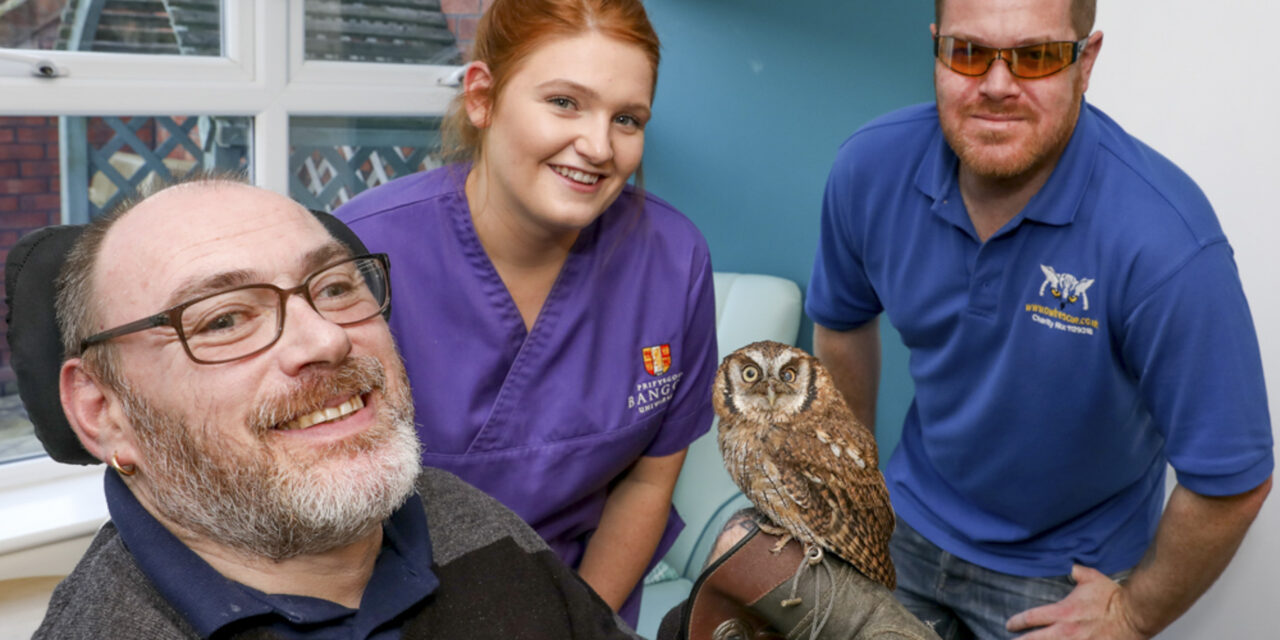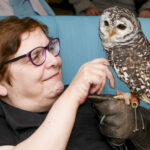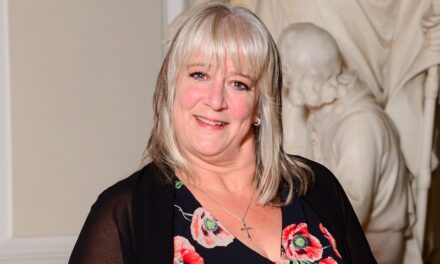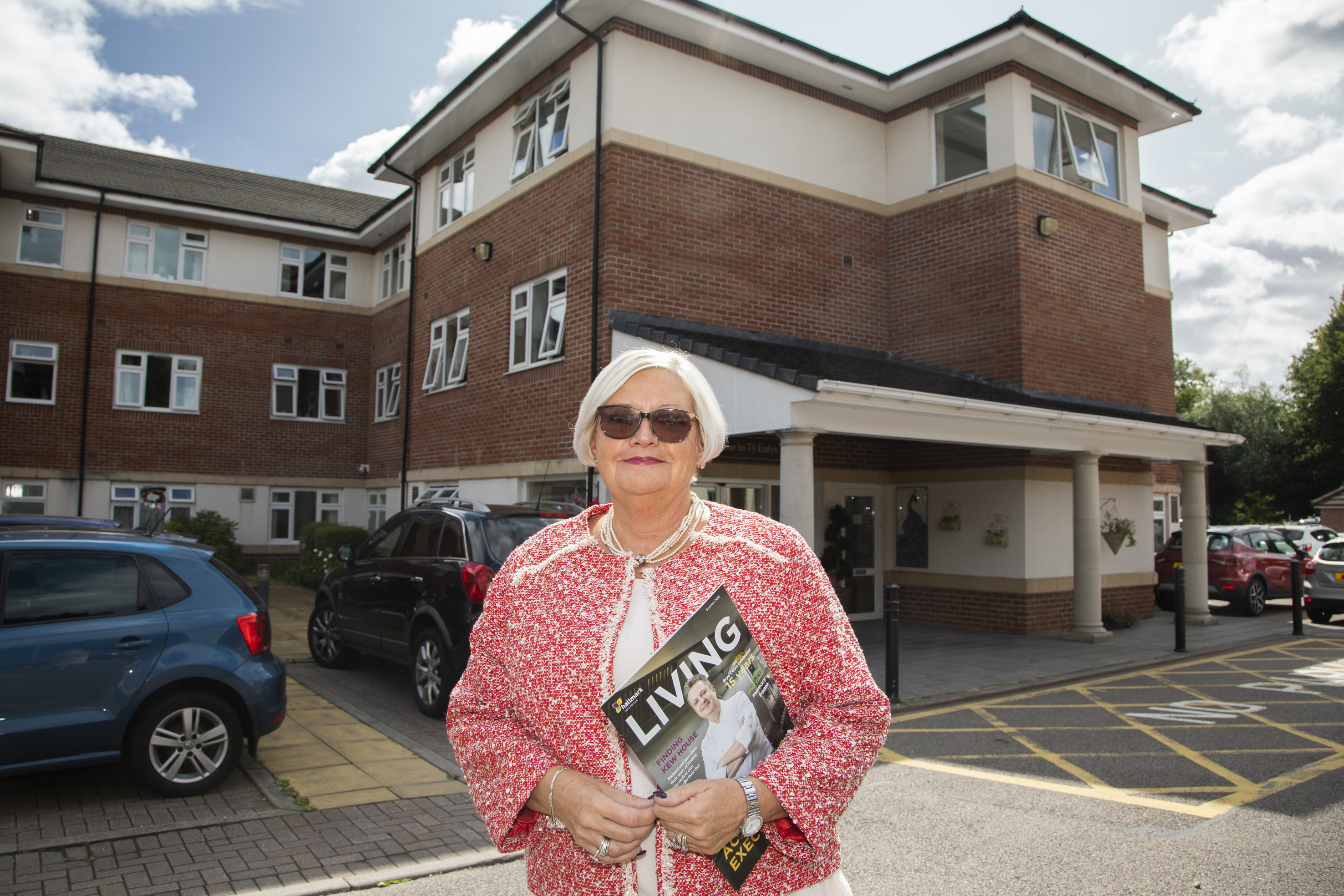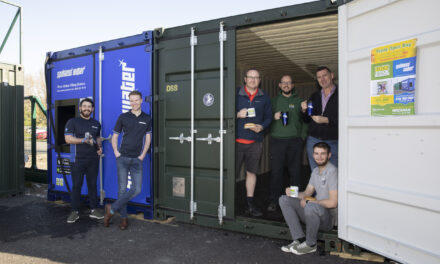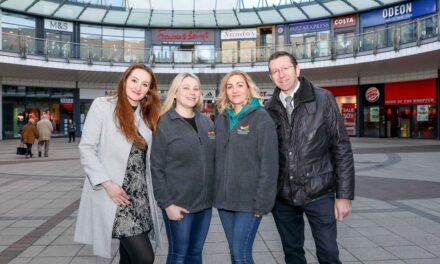Care home residents had a hoot thanks to an owl that’s been given a new lease of life after it blinded in one eye after its owners wrongly fed it beefburgers.
Aqua, the beautiful Tropical Screech Owl, went down a storm when he paid a flying visit to Pendine Park’s Bryn Bella Care Home in Wrexham.
But his fate would have been very different if he hadn’t been rescued by the North Wales Owl Sanctuary based in Bryneglwys, near Corwen.
Aqua went to Pendine Park with a female owl called Cheeky Chops that’s also being looked after by volunteers at the centre.
Both birds are thought to be seven years old and volunteers explained the beefburger diet was like a poison and led to Aqua’s sight failure.
Rescue volunteer, Pamela Toothill, said they are now in good overall health, but added: “Sadly it was too late to reverse the blindness in one of Aqua’s eyes.
“When he came to us his other eye was also dangerously deteriorating but thankfully we were able to save the sight in that.”
Pamela explained that the problem was one of mistreatment, which is in itself a form of cruelty.
She said: “The owners did not know any better. They fed the birds beefburgers, which is completely the wrong thing to do and seriously damages their health.
“Owls have a very specific diet. Any wavering from that is harmful to them.
“These birds were kept as pets in boxes for large parts of the day until the children of the owners came home from school. They were let out for the kids to do what they wanted with. Then returned to the boxes at the children’s bedtime.
“Both birds were greatly distressed when they came to us, but are much more settled now.”
The birds sat calmly among the small gathering in the Bryn Bella care home’s Seren Lounge, even letting some residents gently stroke them.
Pendine Park resident Emma Barber, 43, a keen bird lover who herself keeps two finches, was thrilled to see the owls, holding one of them on her hand with a specialist glove.
She said: “They are simply beautiful, so delicate and their feathers have so many different flecks of colour. The owl sanctuary does wonderful work and needs all the support it can get.”
Fellow resident, Christine Jones, 75, said seeing the birds reminded her of an incident many years ago when she and her husband rescued an unwell barn owl at their home.
She said: “It was winter and we could see it was struggling. My husband wrapped it in a blanket and brought it indoors to keep warm. We called the RSPCA who came to collect it. They thought it would recover after being fed and rested, which we were pleased about, but we always wondered how it got on after it left us and whether it was ever returned to the wild.”
Pamela said there are more than 150 birds in the rescue centre’s care. Most reside there full time, but a few are able to be returned to the wild.
She said: “We have to be careful about returning them to wild habitats. It is not commonly known but an owl’s feathers are not waterproof so we can only set them free on dry evenings when they have a chance to get their bearings and find dry shelter.”
Fellow volunteer Steve Boswell, of Buckley, has been helping at the centre since he was aged 12.
Now 36, he is a full time DJ but continues to volunteer in his free time.
He said: “It is such rewarding work and owls are becoming increasingly rare. We must do everything possible to protect them and their natural environment for future generations.”
Aqua, the smallest of the two owls which visited Pendine Park, is a Tropical Screech Owl, while Cheeky Chops is a Chaco Owl. The natural habitat of both these breeds is South America.
Not much is known about the history of Aqua and Cheeky Chops or whether they were bred in Britain, but Pamela said: “They are great pals which we try to keep together as they miss each other deeply when they are separated. Cheeky Chops is very protective of Aqua. It’s as if she thinks she’s his mum.”
Pendine Park resident Darren Nicholas said he was not at all nervous about encountering the owls.
He said: “They can tell if you are wary of them and that makes them nervous too. But if you are calm and treat them gently then they are calm too. It’s very therapeutic holding them. They are amazing creatures.”
The owl sanctuary, at Bryneglwys, Corwen, is a registered charity which relies on donations and fundraising events to continue its work.
Pamela said it costs £500 a month to feed just one owl. The charity aims to raise more than £23,000 in donations a year, as well as running fundraising events, visits to schools and community organisations and ‘keeper for a day’ schemes to help finance its valuable work.
As well as caring for rescued owls it also supports the national campaign to help revive the British owl population which has declined dramatically since the 1970s. There has been a 70 percent reduction in the population of British barn owls over the last 50 years, with only about 2,000 pairs remaining.
Steve said it has become increasingly important to educate the public about ways to save our natural owl species from potential extinction.
For more information about North Wales Owl Sanctuary visit: www.owlrescue.co.uk, telephone: 07981 555934.

